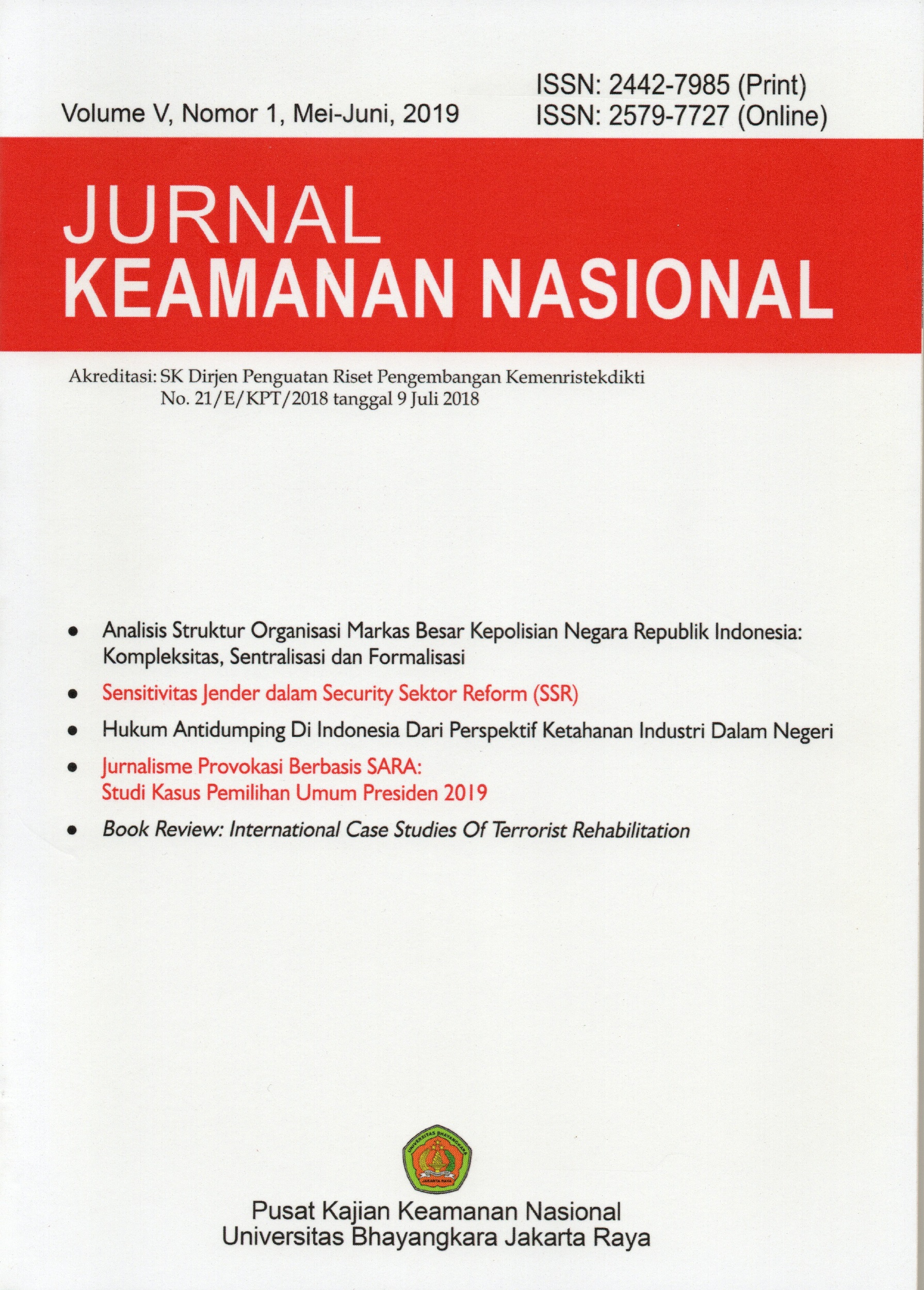Jurnalisme Provokasi Berbasis SARA: Studi Kasus Pemilihan Umum Presiden 2019
Keywords:
Provocation Journalism, SARA Sentiment, Online MediaAbstract
The activities of journalism that are determined by the conditions of the press and mass media in a country eventually give birth to journalism
which contains many elements of provocation, so it is feared that the Indonesian Government will emerge the potential for security disturbances from the communication and information sector. Furthermore, reporting on conflict or SARA sentiments in legal and independent online media has to consider whether it has relations with security and political conditions in an area. Such a situation became the initial foundation of research on the Early Detection of Provocation Journalism Based on SARA Sentiment Ahead of General Elections in Indonesia. Textually and conceptually, provocation journalism is very easily captured by the audience (audience) both the motive and the purpose. Constructed news or opinions, manipulations or inserted provocation contents become stimulants for the sake of the formation of public
opinion which in the end moves active and dynamic actions and reactions. Journalism provocation is the latest development of four theories about the press and power, namely Authoritarian Press Theory, Libertarian Press Theory, Social Responsibility Press Theory, and Soviet Communist Theory (Fred S. Siebert et al, 1986). Of course, this provocation research on journalism can be used as a new reference as well as consideration in the management of democratic security both in the country and in the world.
Downloads

Downloads
Published
Issue
Section
License
Please read and understand the copyright terms for submissions to this journal.
Copyright Notice
The Jurnal Keamanan Nasional is under the Creative Commons Attribution 4.0 International (CC-BY 4.0) License, according to which:
1) Authors retain copyright and grant the journal the right to first publication, with the work simultaneously licensed under the Creative Commons Attribution (CC-BY 4.0) that allows the sharing of articles published with the acknowledgement of authorship and the initial publication in this journal.
2) The authors are authorized to make additional contracts separately for distribution of the version of the work published in this journal (for example, publication in an institutional repository or as a chapter of the book), as long as there is recognition of authorship and initial publication in this journal.
3) Authors are authorized and encouraged to publish and distribute their work online (for example, in institutional repositories or on their personal pages) at any time before or during the editorial process, as it increases the impact and reference of the published work.












